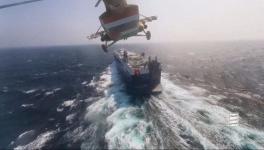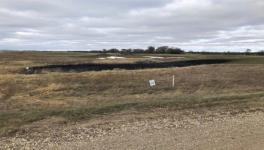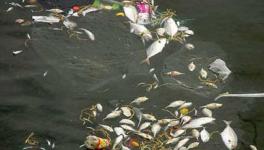Scientists Warn of Catastrophic Oil Spill from Abandoned Ship in Red Sea
New York: Scientists have called for action to remove the oil from an abandoned tanker in the Red Sea that holds approximately one million barrels of oil -- four times the amount contained in the Exxon Valdez tanker which had a disastrous environmental oil spill in 1989.
According to the analysis, published in the journal, Frontiers in Marine Science, the tanker named Safer is a floating storage and offloading unit (FSO) abandoned for years in the Red Sea.
"The time is now to prevent a potential devastation to the region's waters and the livelihoods and health of millions of people living in half a dozen countries along the Red Sea's coast," said co-author Karine Kleinhaus, Associate Professor of the School of Marine and Atmospheric Sciences (SoMAS) at Stony Brook University in the US.
"If a spill from the Safer is allowed to occur, the oil would spread via ocean currents to devastate a global ocean resource, as the coral reefs of the northern Red Sea and Gulf of Aqaba are projected to be among the last reef ecosystems in the world to survive the coming decades," Kleinhaus said.
She said the coral reefs of the northern Red Sea are unique since they survive in much warmer waters than today's ocean temperatures, which are becoming too high for most coral to tolerate.
The researchers said the fish living on the reefs off Yemen in the southern Red Sea are also a major food source for the populations of the region, adding that the entire sea and its coral reefs are a highly biodiverse and rich ecosystem.
They said seawater breached the Safer and entered the engine compartment, with recent reports noting oil spots next to the tanker, indicating likely seepage.
Since the Safer has been abandoned since 2015, the researchers warned of a decaying tanker poised to degrade to the point of a mass oil leak into the Red Sea.
Using a computer model of how the oil will disperse if a major leak begins this winter, the scientists showed that it will reach much further if a spill occurs now rather than in summer due to the winter currents in the Red Sea region.
The researchers believe a spill now could cause much broader and more extensive devastation as a result.
Despite signs of the Safer's structural deterioration, they said access to the tanker has yet to be achieved and concrete steps to repair or to prevent an oil spill have yet to been taken.
According to the scientists, winter is the worst time to have an oil spill in the region since winter currents "will disperse oil much more widely."
"Emergent action must be taken by the UN and its International Maritime Organisation to address the threat of the Safer, despite political tensions, as a spill will have disastrous environmental and humanitarian consequences, especially if it occurs during winter," Kleinhaus said.
Get the latest reports & analysis with people's perspective on Protests, movements & deep analytical videos, discussions of the current affairs in your Telegram app. Subscribe to NewsClick's Telegram channel & get Real-Time updates on stories, as they get published on our website.





















